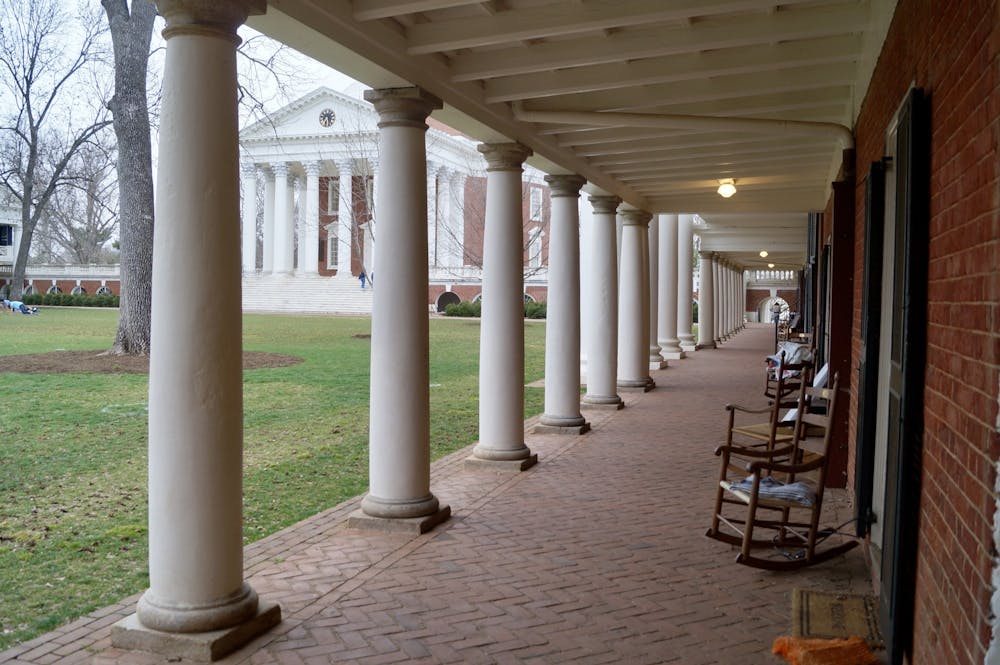中文版请点击此处
There has been recent buzz in The Cavalier Daily’s Opinion section about free speech, discrimination and bigoted rhetoric. Discussion has centered on condemning attempts to shut down free speech and also advocating for the University to take a stand against bigotry and deny platforms to prejudiced groups and individuals. Free speech is a fundamental right and a public university cannot legally deny space to those who have minority — or bigoted — opinions. However, the University’s lack of action in cases of discrimination is concerning and makes Grounds unsafe. These goals do not have to be opposed to one another — they can be reconciled. The University can preserve freedom of speech while exercising their right to ban outright discrimination on Grounds.
Examples of organizations that have been accused of practicing discrimination include the Fellowship of Christian Athletes, where students identifying as homosexual are not allowed to be student leaders as part of their national policy. Additionally, job postings for the University’s FCA chapter make clear that all employees must abide by sexual purity standards that prohibit homosexuality. Chi Alpha and Young Life have also been the subject of recent scrutiny for asking student leaders to step down because they violated standards that bar homosexual relationships.
Stopping University-funded discrimination is not a violation of free speech. It is well within the rights of the University to stop giving resources, funding and event space to CIOs that restrict their membership through discrimination of protected classes.
The legal basis for the University’s right to ban these clubs comes from the Supreme Court decision, Christian Legal Society v. Martinez. This case involved Hastings College of the Law facing an almost identical issue where a chapter of the Christian Legal Society effectively barred students from joining if they were homosexual. The court ruled that a public college would not breach the First Amendment by refusing to accept a student association that refuses to admit all students. Since these laws regulate conduct — in these instances, discriminatory conduct — rather than speech, courts usually acknowledge that they do not violate the First Amendment. The University has the power to enforce their non-discrimination policy because of this case precedence — they are making an active choice to ignore the actions of these clubs.
This active discrimination is disgusting, immoral and in direct opposition to the University’s values. We need to make clear that while we cannot police an organization’s opinions, we can restrict discriminatory practices. The University’s reasoning for ignoring these actions likely lies in the organizations’ popularity. Chi Alpha, for example, is one of the largest Christian-interest clubs on Grounds, boasting thousands of members since its inception and adding over 500 members each year. Similarly, the Fellowship of Christian Athletes is extremely popular among the student body’s athletes. However, the University cannot fear taking action against these clubs because of their popularity and influence on Grounds, or fear that such action is a violation of their free speech. It is cowardly to stand by as students are barred from CIOs that use University-funded resources and spaces. I have written about blatant discrimination against LGBTQ+ students on Grounds, and it is no secret that these organizations have policies that go beyond having bigoted opinions. It is no longer ignorance at this point — it is complicity now.
A Virginia statute allows student groups to deny membership based on political and religious affiliation. However, the University can still take action since the referenced Supreme Court decision overrides this. While the Student Council recently passed legislation denouncing Chi Alpha’s and Young Life’s actions, it has limited power. The University’s student representative body cannot affect the national policies of Young Life, Chi Alpha and the FCA. For example, the University chapter of FCA will continue to discriminate against LGBTQ+ people seeking paid positions with them. This is why it is in the hands of University leaders such as President Jim Ryan and Dean of Students Allen Groves who have the power to take administrative or legal action, and allow the University to be welcoming for all. As individual students, we can make our voices heard by lobbying the Virginia General Assembly or pressuring the University to take action, but it is the University leadership that needs to take legal responsibility for discrimination on Grounds. We can preserve these groups’ free speech — whether we agree with their rhetoric or not — while legally drawing the line at discriminatory and exclusionary policies.
While Chi Alpha and Young Life’s scandal has been out of the news cycle for months now, and though FCA’s homophobia has not gained the student body’s attention, we cannot let this go. Many students are quick to advocate for other issues of discrimination — as they should — but turn a blind eye when it comes from religious communities. Students should not be funding the discrimination of other students, and fighting such policies is not an incursion on free speech.
Nicole Chebili is an Opinion Columnist for The Cavalier Daily. She can be reached at opinion@cavalierdaily.com.
The opinions expressed in this column are not necessarily those of The Cavalier Daily. Columns represent the views of the authors alone.
Correction: This column previously misclassified the Fellowship of Christian Athletes as a Contracted Independent Organization. It has been updated to reflect that while there is an FCA chapter active at the University, it is not a CIO.







